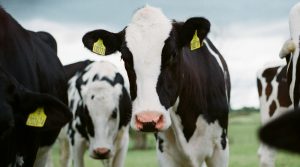
Their visit comes as Australia’s dairy industry prepares to relaunch standardised artificial insemination (AI) training to develop local breeding professionals to meet growing demand.
ABS Global bovine reproduction technicians Lynnsey Crouch and Rebecca Leonard, from America, have joined the herd improvement team at Nu-Genes in western Victoria.
Nu-Genes director Adam Daniel said the industry has been ‘massively short’ of breeding expertise for a long time.
“The last couple of years, pre-COVID, we’d been quite short and then we had an idea to approach AI companies asking if they had staff that would be interested,” Mr Daniel said.
The number of corporate farms and the number of cows on farms was increasing, so Nu-Genes needed more people.
” ABS jumped at the chance to help the Australian dairy industry while also providing valuable on farm educational opportunities for its global staff,” he said.
Mr Daniel said adding Ms Crouch and Ms Leonard to the Nu-Genes team should provide farmers with confidence, because they were well-trained and experienced technicians.
“It’s about quality assurance, knowing that when someone turns up on farm, they know how to do their job properly,” he said.
ABS Australia general manager Marcus Rees said there had been a “clear need” for more technicians in Australia.
“We have access to a skilled labour force in America, so we joined forces with Nu-Genes to bring some technicians out to Australia and help alleviate an industry challenge,” Mr Rees said.
“At this stage there’s no real benefit to ABS, it’s about helping Australian dairy farmers get access to skilled reproduction technicians and getting more cows in calf.
“In time, we’d love to expand the program and bring more staff from across the globe out to Australia and perhaps send local staff overseas to broaden their skills set and improve their breeding knowledge.”
National Herd Improvement Association of Australia (NHIA) chairman Graeme Gillan said a member survey up to three years ago identified a shortage of AI technicians, especially with growing interest in artificial insemination in the beef industry, and a need for standardised training.
He said the standardised training would be relaunched in the coming months.
“There is a huge amount of resources going into TAFE as a starting point for the initial training,” he said.
“It will be a stepping-stone for people who wanted to be more serious about it and AI at their home property.
“The next step will be to develop an accreditation for a professional level.”
























